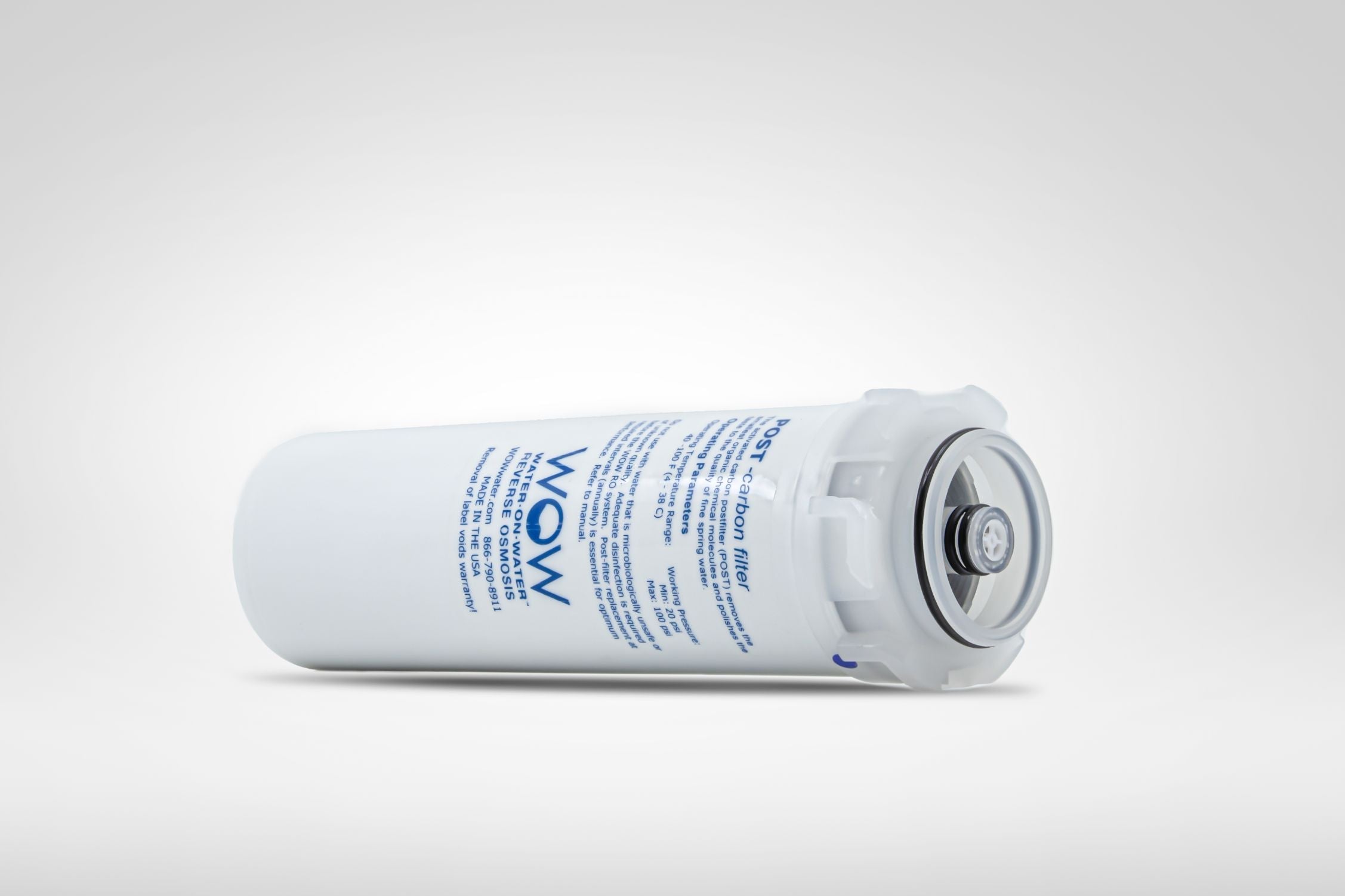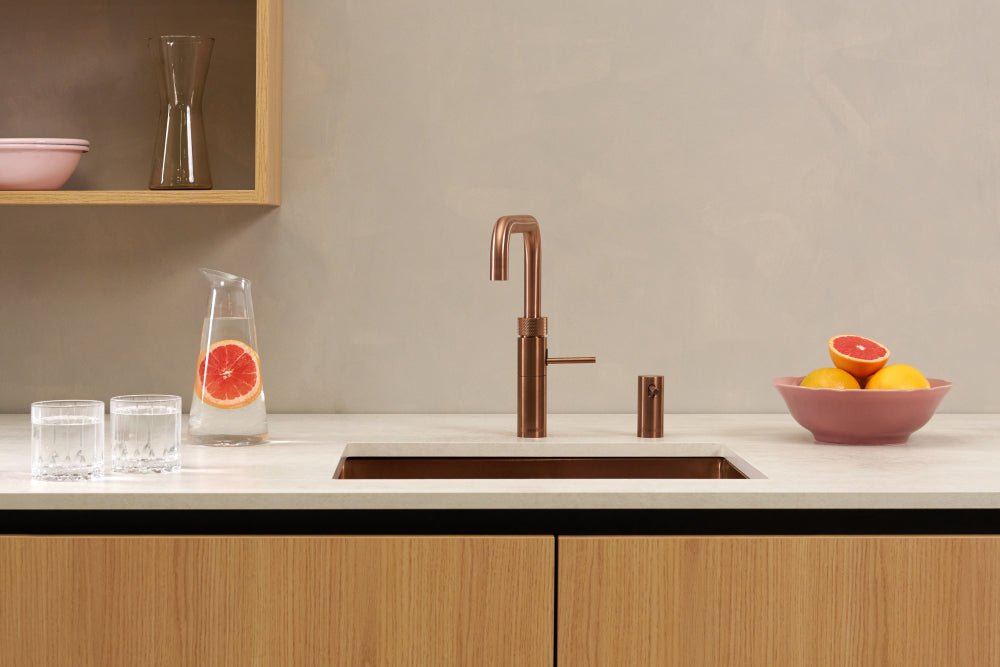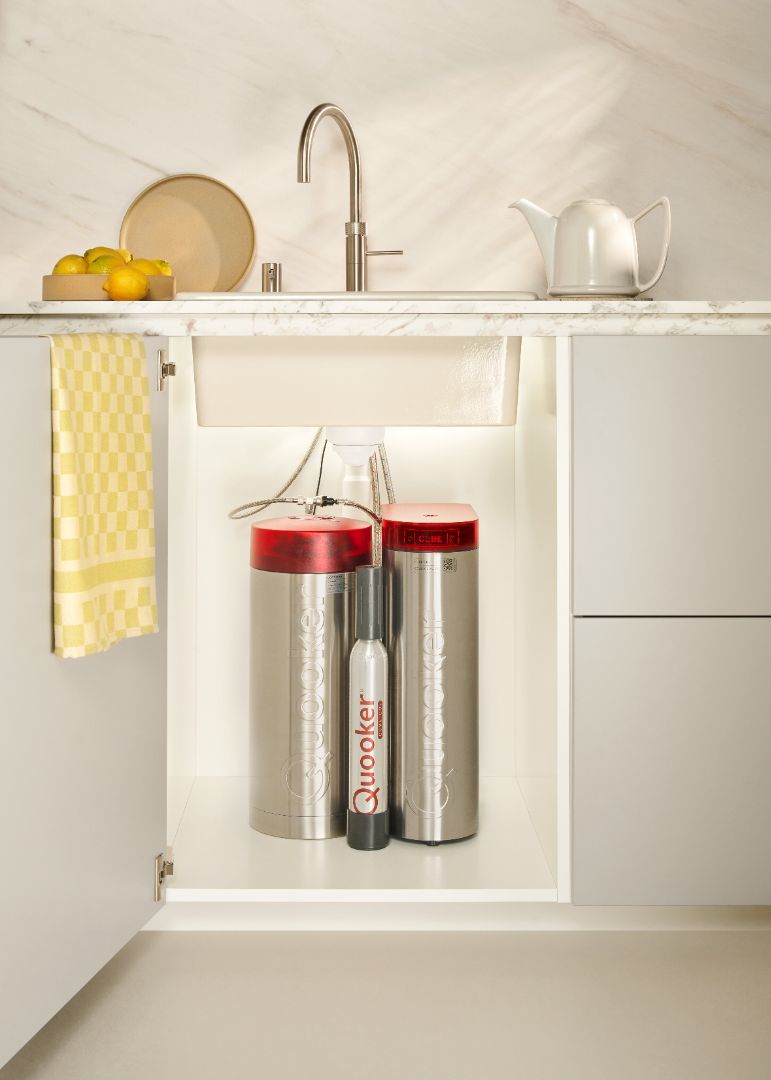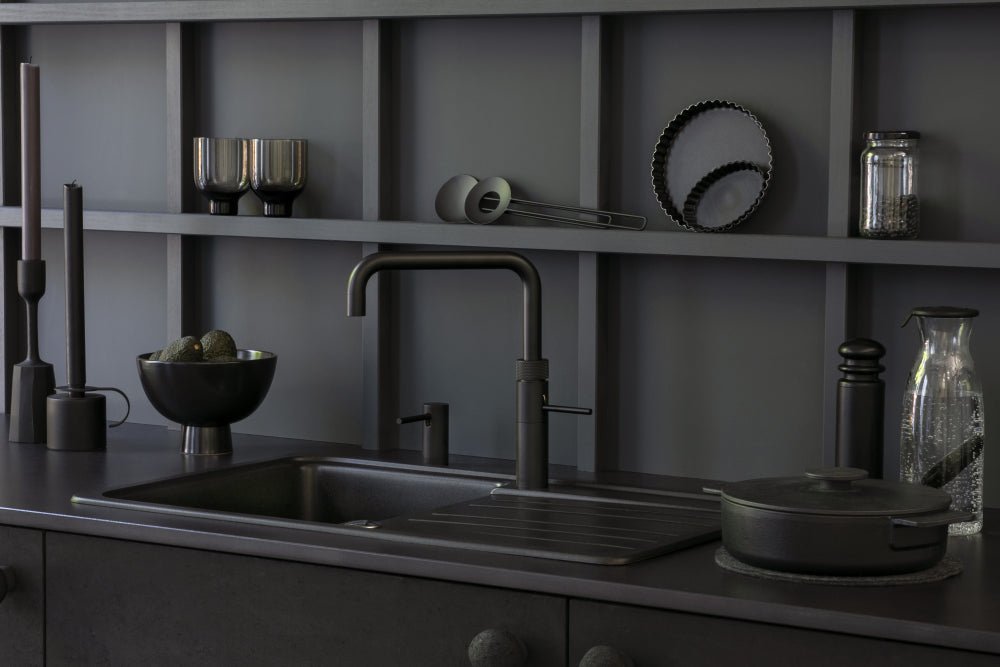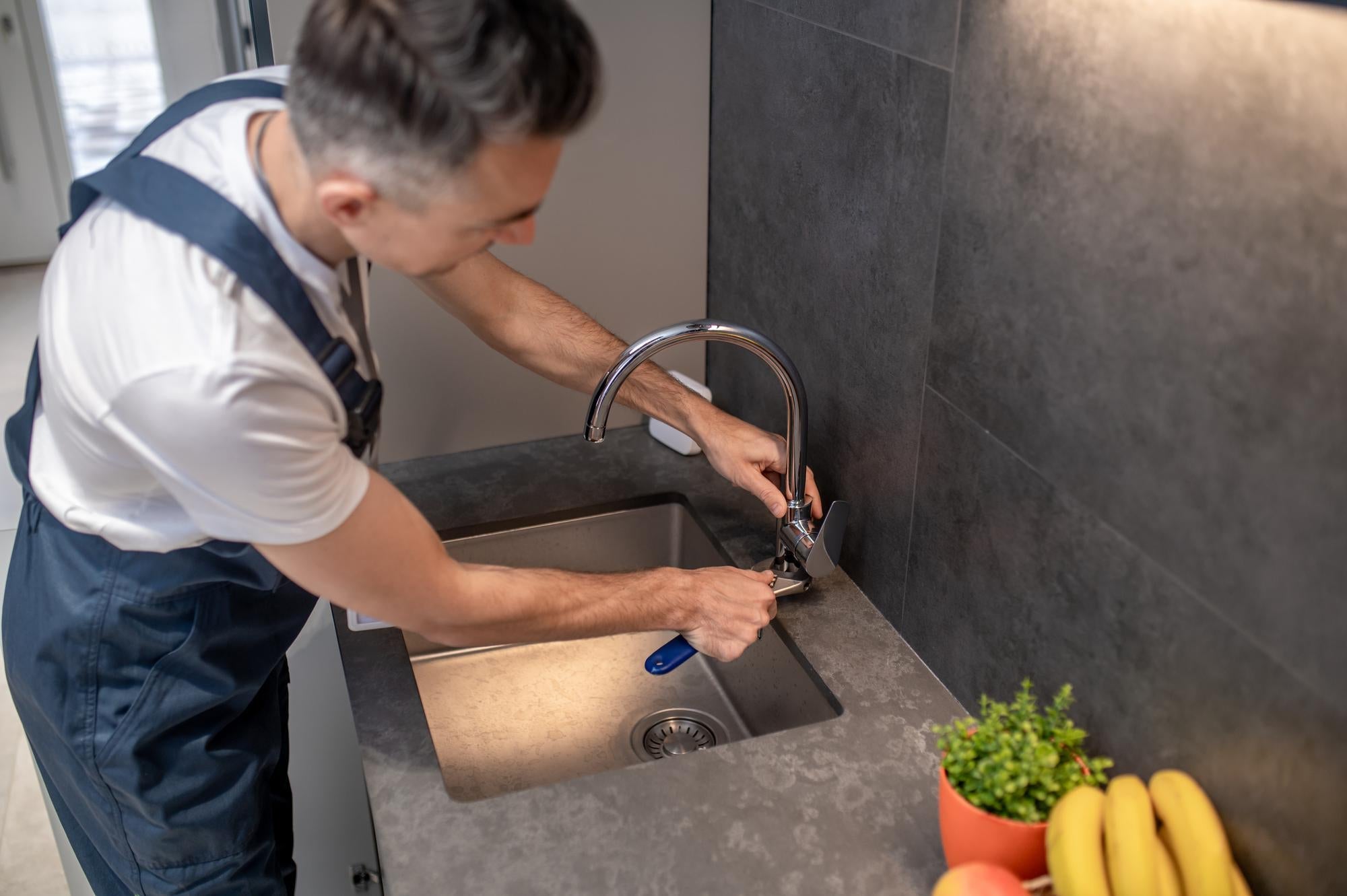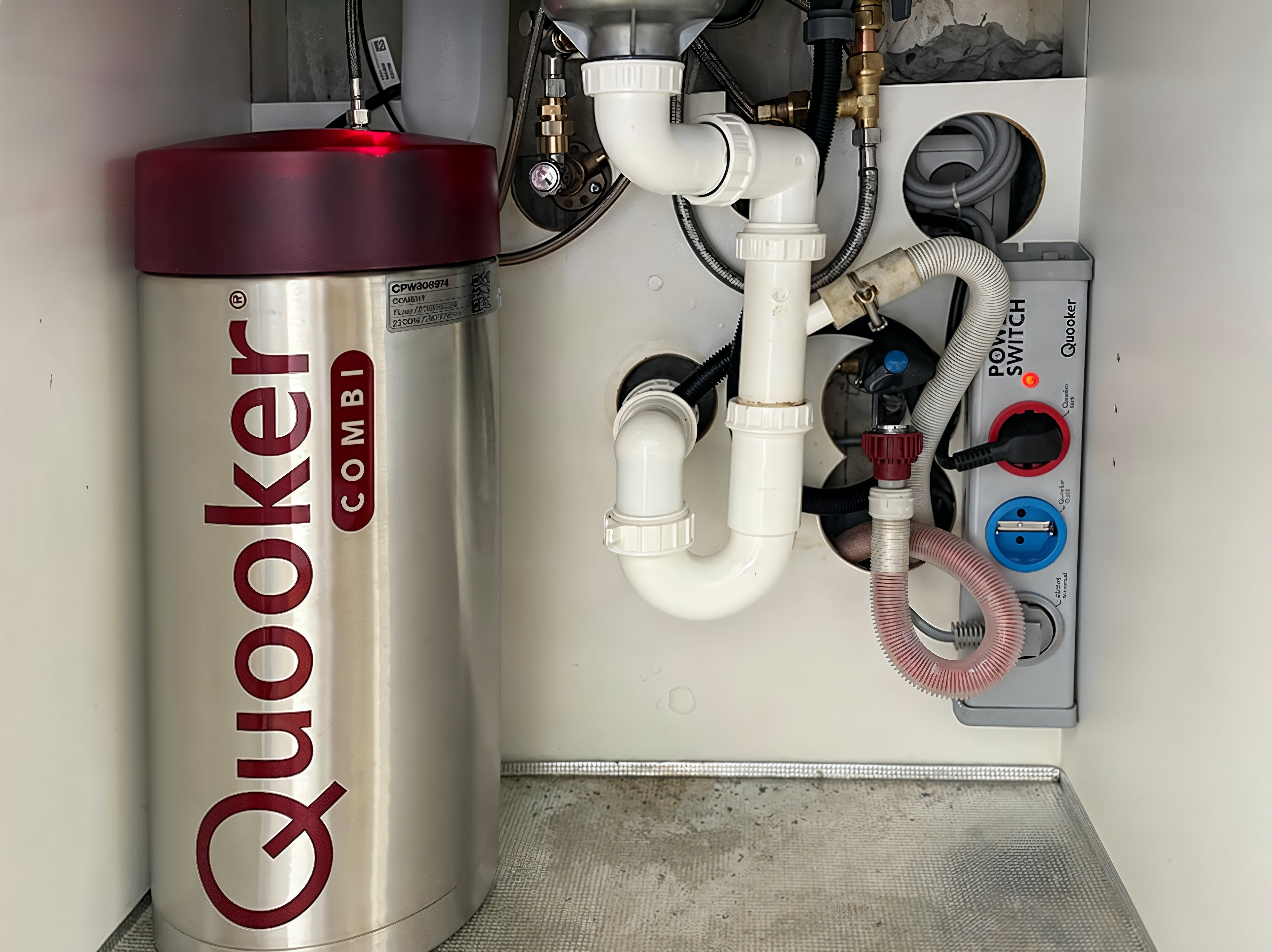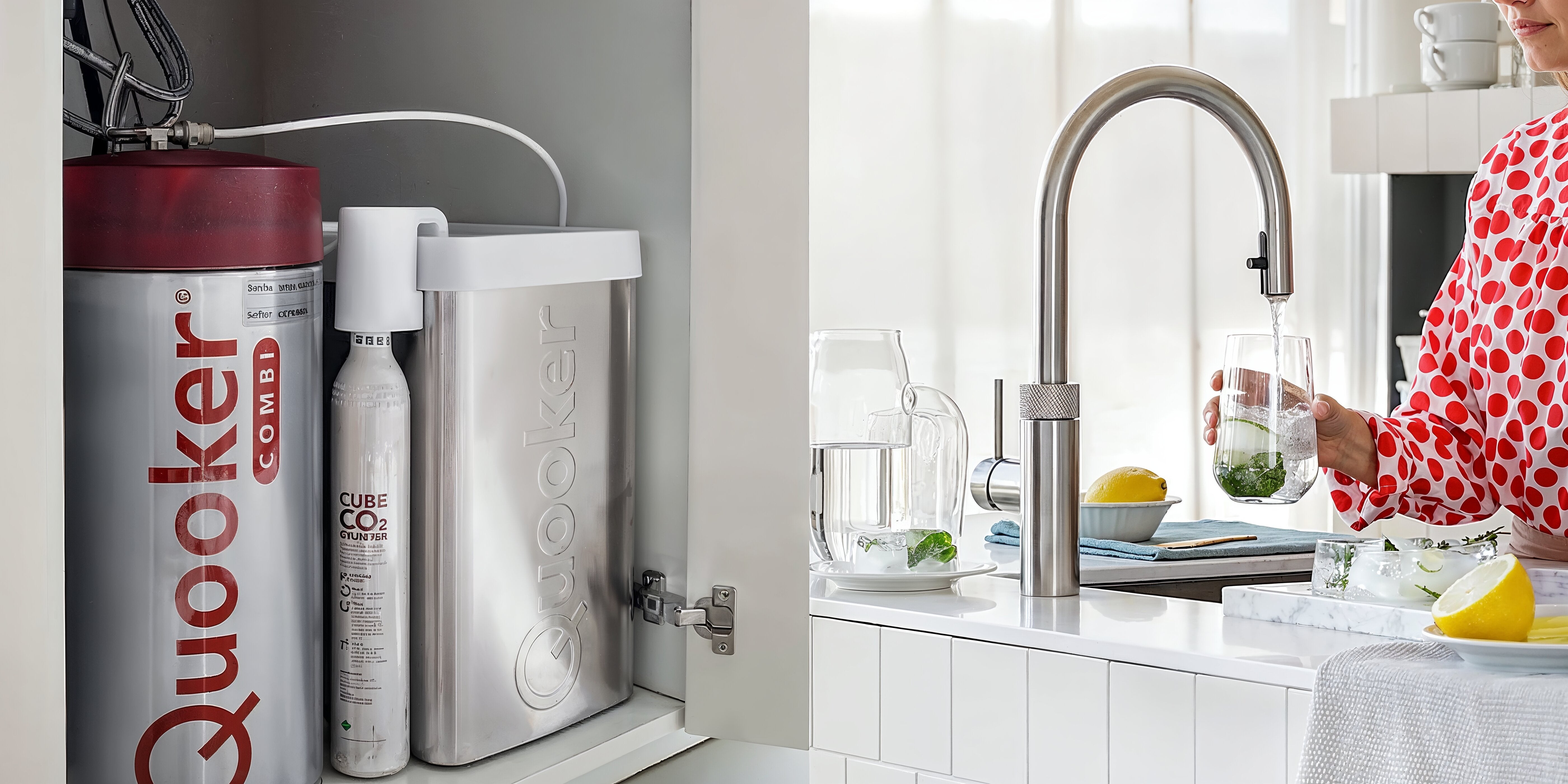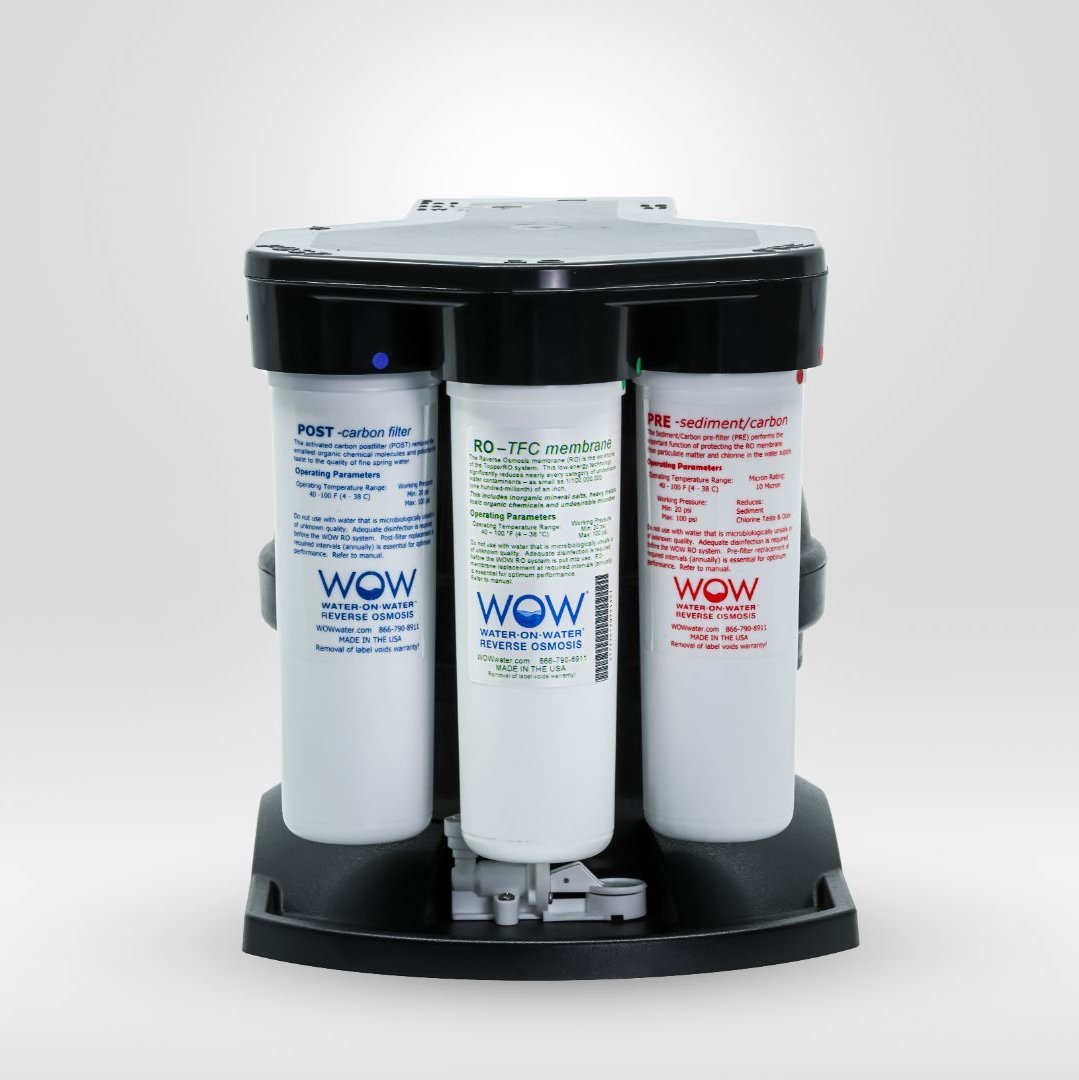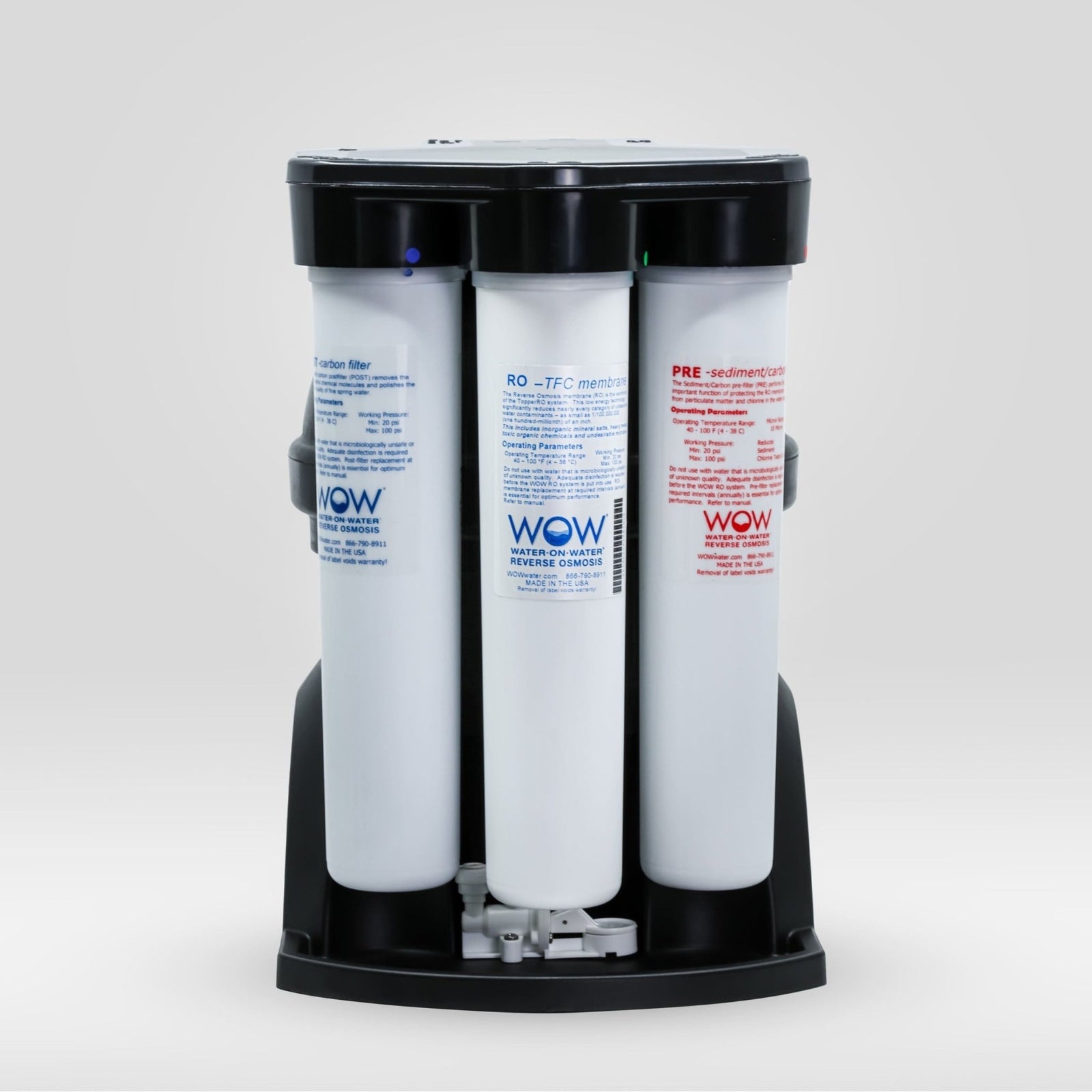Modern water filtration offers an effective solution for purer and healthier drinking water. Activated carbon filtration systems are particularly popular for their ability to remove unwanted substances from water. This filtration method not only improves the taste and odor of water but also removes potentially harmful chemicals. At PureAqua, we're seeing more and more households opting for this technology to optimize their drinking water quality and minimize health risks.
What is a carbon filter and how does it work?
A carbon filter consists of activated carbon, a porous material with a huge internal surface area. This material is made by heating carbon-rich sources such as coconut shells, coal, or wood under specific conditions. The result is a material with microscopic pores that act like a magnet for contaminants.
When water flows through a carbon filter, a process of adsorption occurs. This process involves unwanted particles adhering to the surface of the activated carbon. This differs from absorption, which involves the absorption of substances into the material itself. This adsorption property allows activated carbon to effectively remove chlorine, pesticides, certain heavy metals, and organic compounds from water.
There are several types of carbon filters. The most common are:
- Block filters : compact compressed carbon in block form, very effective for removing small particles
- Granulate filters: loose granules of activated carbon, suitable for larger water volumes
- Powdered carbon filters: finely ground activated carbon, often used in combination with other filter methods
Water filter systems like The Source use activated carbon as a pre-filter in the reverse osmosis process. This pre-treatment removes larger particles and organic contaminants, significantly extending the life of the entire system.
What are the benefits of a carbon filter for water purification?
Implementing an activated carbon filter system offers numerous benefits for home water quality. First, it effectively removes chlorine, which is routinely added to tap water for disinfection but can leave an unpleasant taste and odor. This not only makes the water taste purer but also significantly improves the flavor of coffee, tea, and other beverages.
In addition, activated carbon filters a broad spectrum of chemical contaminants from the water, including:
- Pesticides and herbicides
- Industrial solvents
- Certain pharmaceutical residues
- Volatile organic compounds (VOCs)
For families, this provides an extra layer of protection against potentially harmful substances. Moreover, carbon filtration is relatively environmentally friendly compared to alternatives like bottled water. It reduces plastic waste and has a smaller carbon footprint than the production and transportation of bottled water.
At PureAqua, we see that after installing an activated carbon system, customers often notice that not only their drinking water, but also cooked dishes taste better, and that flowers stay fresh longer in filtered water.
How do you choose the right carbon filter for your situation?
Several factors play a role in selecting the optimal carbon filter for your household. First, it's important to determine which type of filter best suits your needs:
- Block filters provide excellent filtration and are ideal for drinking water applications where purity is a priority
- Granulate filters are suitable for larger systems and situations where a higher flow rate is required
- Powdered carbon filters are mostly used in specific industrial applications
Your household's water consumption will also determine the filter capacity you need. A standard system is usually sufficient for an average household of 2-4 people, while larger households benefit from a higher-capacity system.
The specific water quality issues in your region are also important. With a TDS meter (Total Dissolved Solids), you can test the quality of your tap water to gain better insight into the contaminants present. This will help you choose a filter specifically designed for your situation.
Installation and maintenance are also important considerations. Some systems, such as our water filter systems , are designed for easy installation and minimal maintenance, while others require more technical expertise.
Frequently Asked Questions about Carbon Filters
Many customers wonder how long a carbon filter lasts. The lifespan depends on several factors, including water quality, frequency of use, and filter type. On average, we recommend replacing filters annually to ensure optimal performance. The included water meter allows you to monitor the effectiveness of your filter and determine when replacement is necessary.
In terms of maintenance, modern carbon filters are designed for minimal upkeep. Replacing filters is usually a simple procedure that can be performed without special tools. At PureAqua, we offer a subscription service that automatically sends you new filters when replacements are needed.
Another frequently asked question concerns the cost. While the initial investment in a quality filter can be higher than cheaper alternatives, it's often more cost-effective in the long run due to its longer lifespan and better performance. It also significantly reduces the cost of bottled water.
Compared to other filtration systems like distillation or reverse osmosis, carbon filtration offers a good balance between effectiveness, ease of use, and cost. For optimal results, a carbon filter can also be combined with other technologies, such as in our system, The Source, which combines carbon filtration with reverse osmosis for maximum purification.
For sustainability-conscious users, PureAqua offers the option of returning used filters so they can be recycled into reusable water bottles. A simple and sustainable way to contribute to a better environment.
